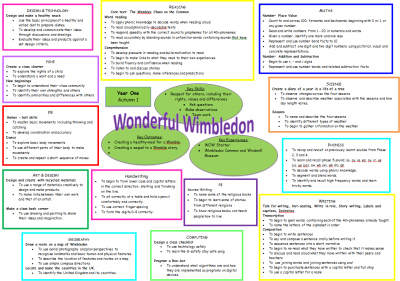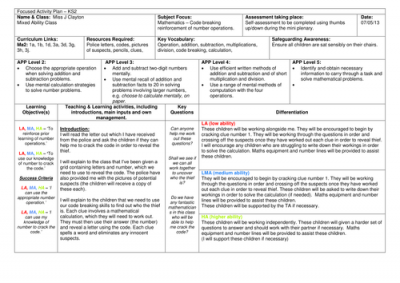In the previous article we looked at the vital importance of maintaining a work/life balance and the detrimental effects when this does not exist.
With such an overloaded curriculum and the “oppressive ” nature of assessment of both pupils and staff, the potential for excessive workload and accompanying negative consequences in both school and home life is all too real.
So lets look at ways to streamline the processes that exist in daily school life – save time on the necessary tasks and processes and perhaps decide that some things are just not worth bothering with!
From our previous list we have already covered Marking – here’s the remainder of the list
- Feedback
- Planning
- Assessments
- General paperwork
- Overall organisation and management of school
- Computerisation
Feedback…link this with marking
There is a push at the moment for detailed feedback to pupils at the end of work completed – if you have read a previous article on “marking – the governments view” you will see that this is neither a government nor OFSTED requirement….which begs the question why do it?
Lets be honest – in writing anything at the end of a piece of work (and grading) you are letting the child know how well they have done and perhaps a brief word or two on some improvement or correction ( but don’t forget we are only marking on Learning objectives so any short comment should be only related to that). As a teacher however you are also looking for whole class factors that may need re-teaching or correcting. Should you need to deal with individuals in more detail, simply write “see me” and then put 1 or 2 words underneath to remind yourself what it was for and then catch up with the pupil next lesson.
So cut down or almost out altogether the trend for this ridiculous detailed feedback / conversation….the kids aren’t interested in it either!
Planning
This is an important one because coupled with marking it is one of the key factors that can cause overload…but really it shouldn’t and doesn’t need to.

If we list the 3 stages of planning as:-
- Long term
- Medium term
- Short term or personal planning
The 1st two …long and medium term planning are pretty much set out and there is not much scope for time saving. They are done at the start of a topic and form the progressive foundations for what is delivered in the classroom.
Most schools follow the “topic based” approach and so a general starting point is a topic based web which outlines in bullet points the areas for each subject – related where possible to the theme. These are then broken down into more detail in the medium term plans.
Even if your school uses a computer based system you will benefit from planning this way and then transferring it across to the computer program – the same thought and planning processes need to occur whichever system is used. But – if you’re filling in tick boxes on a computer don’t waste time agonising about what and where….go with your gut option and just get it done! I was in a school where we had to use the Creative Curriculum….lots of boxes to tick and it produced a very colourful pie chart with writing on it. It was put in a file and never looked at again! So whatever system you use get your thought processes into long/medium and short term mode!
However having said that Long and medium planning is pretty standard stuff – it is at the short term or personal planning stage that it has its most dramatic effect and this is where colleagues can struggle and spend hours. In other words your short term planning can have a directly negative effect on your work/life balance.
This is an important area we need to sort out – so I am going to woffle on about it a bit!
The bottom line on this is that you need to plan sufficiently for you to deliver the lesson successfully – that’s all. So if you’re an experienced teacher you will need fewer lesson notes than lets say an NQT.
Now let me tell you something that was told to me on one of my teaching practices (many years ago) at a school in Liverpool and after over 30 years teaching I can tell you its true!
If you manage to teach 1 or at a push 2 all singing/dancing (metaphorically) lessons in a week that’s all you will do – the rest will be bread and butter stuff. (there are some weeks when it will be all bread and butter stuff !)
What is being said is that most of your teaching is the usual routine stuff – so don’t expect too much of yourself or be self critical because most of what you will do is “bread and butter”….that doesn’t mean you can’t bring your own spin or fun to it…but be easy on yourself.
So what are the factors that are taking up the time?
I am going to start by suggesting that too much use of the computer is a contributing factor. There is no need to plan your lessons on a computer – yes use the computer to show photo’s/pictures/videos or to use novelty timers etc but in planning the nuts and bolts of a lesson they are not necessary and are time consuming. I can recommend that you buy a hardback A4 lined book from your local stationers….put all your class info in the front and use that for planning your lessons. Headline the day and date and then write notes for every lesson. Resources, computer links for pics, photocopy stuff needed etc…write it chronologically…note down group/task etc and put it open on your desk or table as you teach. If you need more notes to deliver the lesson then write more and if you don’t need so much then don’t write much. Remember – its what you personally need to deliver a successful lesson…no more and no less. I guarantee that you can do this quicker than on a computer.
When you arrive in school you simply look through the mornings notes and get any resources ready…simple. (as an aside….there is no need to arrive in school before 8.00 a.m – don’t do it!)

However….whilst I have outlined what is necessary in the planning stages there are some schools that require more from staff. Let me say straight away that any extra from what we have discussed is just that, EXTRA and to be honest unnecessary. So any requirement for weekly planning sheets to be submitted is an unnecessary extra burden on staff. They are not needed and will almost certainly NOT be looked at by Deputy or Headteacher. They will simply be held in a file and wheeled out when OFSTED arrive. There may be occasions when you have to write a lesson plan perhaps for observation purposes …but hey that’s ok from time to time.
There are still one or two things left to consider on the list – but we have looked at the main 2 areas of marking and planning. With regard to planning – as your experience and knowledge builds so things will become easier ….be confident and be purposeful in cutting back on these time consuming areas and you will start to see the balance scales start to tip back in your favour.
Now get out and enjoy the weekend!
Charles


